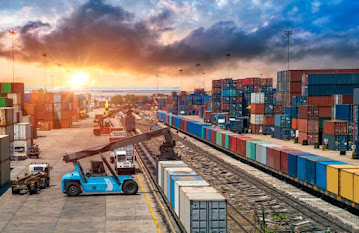Sustainability and Environmental Impact of Cargo Cloud Solutions by Revenue Technology Services
In an era dominated by a surge towards sustainability, industries worldwide are pivoting to strategies that not only boost efficiency but also minimize environmental footprints. The logistics and cargo industry, traditionally seen as a significant contributor to environmental degradation due to its heavy reliance on fossil fuels and resource-intensive operations, is undergoing a transformative shift. A pivotal aspect of this transformation is the integration of advanced technology solutions, particularly cloud-based systems offered by companies like Revenue Technology Services (RTS). These solutions are not just enhancing operational efficiencies but are also playing a crucial role in promoting environmental sustainability.
Understanding Cargo Cloud Solutions
Cargo cloud solutions refer to the utilization of cloud computing technologies to manage, optimize, and control cargo operations. These systems provide a platform for logistics companies to streamline their processes, from inventory management to tracking and delivery. By leveraging the cloud, these solutions offer real-time data accessibility, scalability, and flexibility, eliminating the need for physical infrastructure and extensive hardware that was once a staple in the industry.
Reduced Carbon Footprint
One of the primary environmental benefits of adopting cloud solutions in cargo operations is the significant reduction in carbon footprint. Traditional cargo management often requires extensive paperwork, physical data storage, and employee travel to and from sites for data entry and monitoring. Cloud-based systems simplify these processes by allowing data to be uploaded and accessed remotely. This not only reduces the need for physical storage and paper (thus decreasing deforestation) but also cuts down on fuel consumption associated with commuting. Consequently, there is a direct impact on reducing greenhouse gas emissions, a step crucial for combating climate change.
Energy Efficiency
Data centers, the backbone of cloud computing, have often been criticized for their high energy consumption. However, leading service providers like RTS are increasingly investing in green data centers powered by renewable energy sources. These facilities are designed to maximize energy efficiency and are equipped with the latest cooling technologies that significantly reduce electricity usage. By hosting cargo management solutions in these green data centers, RTS ensures that the energy footprint of their digital services is minimized, aligning with global sustainability goals.
Optimization of Resources
Another significant environmental benefit of cargo cloud solutions is the optimization of resource usage. These systems enable better route planning and vehicle load optimization, which directly contributes to reduced fuel consumption and emissions. Additionally, cloud-based analytics help in predicting maintenance issues, thus extending the lifespan of vehicles and reducing the waste associated with parts and materials. By ensuring that each vehicle is loaded optimally and routes are planned to minimize travel time, RTS's cloud solutions indirectly contribute to preserving natural resources and reducing ecological impact.
Circular Economy and Waste Reduction
Cloud solutions also support the principles of the circular economy by improving the efficiency of the logistics chain. Enhanced tracking and inventory management lead to fewer lost items and reduced overproduction, which in turn minimizes waste. Furthermore, by providing detailed insights into supply chain operations, these solutions help companies to make informed decisions that align with environmental sustainability, such as choosing suppliers who prioritize green practices or investing in more sustainable materials.
Looking Ahead
As we move forward, the role of technology in shaping sustainable business practices becomes increasingly evident. Revenue Technology Services, through its cargo cloud solutions, not only sets a benchmark for operational efficiency but also demonstrates how technological innovations can foster an environmentally friendly approach in traditionally resource-heavy industries. For companies in the logistics sector, adopting such technologies is no longer just about staying competitive but is also about contributing positively to the planet's health.
In conclusion, the integration of cloud solutions by RTS represents a significant advancement in making cargo operations more sustainable. The environmental impacts of these technologies are profound—they not only help reduce carbon emissions and energy consumption but also optimize resource use and support waste reduction. As businesses continue to evolve, integrating sustainability with technological advancement will be key to achieving a greener future. This integration, as demonstrated by RTS, not only meets current logistical demands but does so in a way that is mindful of our environmental responsibilities.




.jpg)
Comments
Post a Comment